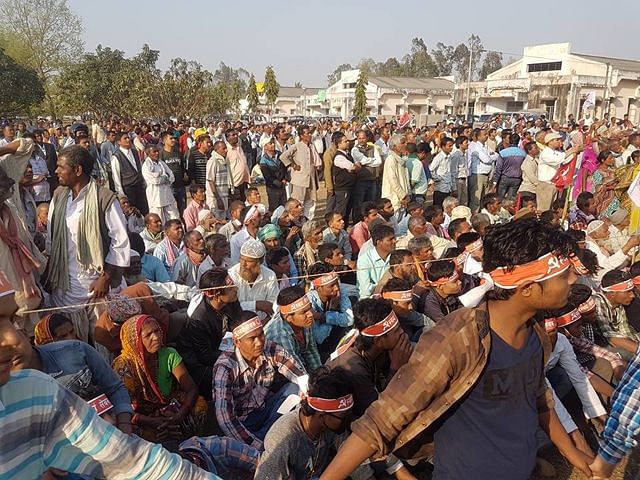Many leaders feel India has dropped the issue of Madhesi rights in Nepal’s constitutional scheme and reverted its diplomatic focus on ‘appeasing Kathmandu’
After losing goodwill of the hill communities in Nepal, India’s popularity now seems to be eroding even in the Madhes region — the plains of Nepal that border India.
Leaders and activists from the Tarai — the region of southern Nepal running parallel to the lower ranges of the Himalayas — have told ThePrint that they are “deeply disappointed” with India for having “dropped” the issue of Madhesi rights in Nepal’s constitutional scheme and reverted its diplomatic focus on “appeasing Kathmandu”. This, they warned, has weakened the Madhes movement for now but could cause long-term radicalisation, hurting Indian security interests.
Back in 2015, after the Nepali constitution was promulgated, Madhesis organised a six-month long mass movement claiming that the statute eroded their political representation and gerrymandered federal provinces in a way which would deprive them of self-rule.
India took a strong position advocating that the political discontent be addressed. It — many in Nepal believe — even tacitly backed a border blockade, disrupting essential supplies. All of this generated resentment in Kathmandu valley and the hills, and allowed the then prime minister K. P. Oli to take a stridently ultra nationalist line.
Two years later, a lot has changed. Madhesi leaders now say that India has told them to accept the constitutional framework and participate in upcoming local elections. An amendment to address their concerns failed in the Nepali parliament last month; yet the Rashtriya Janata Party, an umbrella of Madhesi groups, decided to enter the electoral fray, after claiming it would not do so.
Amresh Singh, a Madhesi MP of the ruling Nepali Congress, says: “There is a perception among the Madhesi leaders and the people that India has dropped the Madhes agenda and is now siding with the hill elite.”
“New Delhi’s strategy is to maintain good relations with the ruling class and Madhesis are not part of that. Madhesi cause at this point is a struggle and not part of the power centre. In the political, constitutional and development agenda, the Tarai doesn’t fit anywhere,” Singh says.
Publicly, PM Narendra Modi urged Nepal — at a joint press appearance with PM Sher Bahadur Deuba — to take all sections of society together and address aspirations of all citizens. Yet, suspicions of an Indian U-turn persist. Singh insisted, “Delhi is worried that if it antagonises the ruling class, it might yield to greater Chinese influence. Whatever India is saying publicly is Madhes’ favour is mere lip service.”
Anil Jha, a former minister and a senior leader of the Rashtriya Janta Party told ThePrint, “In the current situation, Madhes is on nobody’s priority list. Our development and concerns have been dropped. During PM Deuba’s visit, PM Modi had said aspirations of all sections should be taken into account but how serious India is about this, only time will tell.”
Another leader of the RJP, sounding bitter, said on condition of anonymity: “Madhesis are deeply disappointed with India. If we had our way, we would not keep any relations with India at all. There is no need to. But what can we do; we have no option. We are tied emotionally, culturally, geographically, politically and can never be anti-Indian. But India has left us weaker than ever before.”
The sense of betrayal extends to Madhesi civil society. Tula Narayan Sah, a prominent Tarai analyst, says, “In 2008, India mediated an agreement between Kathmandu and Madhes on political representation and federalism — to enable elections for a Constituent Assembly. It was India’s role as the guarantor of that agreement to ensure it happened. But now, when the time came to implement it, India turned back. Instead, to meet Kathmandu’s desire of holding local elections, it has told Madhesi parties to drop their demands.”
Even as Delhi-Kathmandu ties have been restored in recent months, Delhi’s ties with Nepal’s Tarai have clearly dipped. And given its location right across the open border, this may well pose a challenge for India.
New Delhi, however, continues to back the Madhesi cause in its public positions. In his address during PM Deuba’s visit last week, Modi said that under Deuba’s leadership, while taking “all sections of society together and continuing the process of talking to all sections, and addressing and accommodating aspirations of all Nepali citizens”, the constitution will be successfully implemented. This clearly indicated that the Indian government was asking Kathmandu to accommodate Madhesi concerns.



